 Casino
Casino
The Rise Of Poker In Pop Culture: From Casinos To Cinema
Poker, a skill, strategy, and chance game, has grown beyond its origins in smoky backrooms and glittering casinos. Today, it is prominent in pop culture, influencing films, television, and even the digital world. From its portrayal as a symbol of risk and cunning in movies to its evolution as a competitive sport, poker’s journey through pop culture is as fascinating as the game itself.
The Origins of Poker in Popular Culture
Poker in Early America
Poker’s roots in popular culture began in the 19th century when it was a favorite pastime in the saloons of the Wild West. Cowboys, gamblers, and adventurers made poker synonymous with the rugged individualism of early America. The game became a cultural touchstone, representing boldness and the thrill of risk-taking.
The Casino Era
With the rise of glamorous casinos in Las Vegas in the mid-20th century, poker took on a new identity. Casinos became the backdrop for high-stakes games and dramatic showdowns. The game transitioned from saloon tables to felt-covered surfaces under bright lights, drawing not only professional gamblers but also curious spectators and the attention of Hollywood.
Poker on the Silver Screen
The Allure of High Stakes in Cinema
Movies have played a significant role in romanticizing slot. Films like The Cincinnati Kid (1965) and Rounders (1998) showcase the tension and excitement of high-stakes games. These movies capture the drama of poker—the psychological battles, the thrill of a winning hand, and the despair of a loss.
One of the most iconic depictions of poker came with James Bond in Casino Royale (2006). The film’s intense poker scenes at the Monte Carlo Casino helped cement Texas Hold’em as the game of choice for thrill-seekers and strategists alike.
The Rise of Poker Antiheroes
Movies often portray poker players as complex antiheroes. Characters like Mike McDermott from Rounders are not just gamblers but strategists with a deep understanding of the game’s psychological nuances. These portrayals have elevated poker players from mere gamblers to masterminds, making poker a symbol of intelligence and skill.
Television and the Poker Boom
The World Series of Poker (WSOP)
Television brought poker into living rooms worldwide, particularly with the advent of the World Series of Poker (WSOP) broadcasts. The 2003 victory of amateur Chris Moneymaker in the WSOP, often called the “Moneymaker Effect,” sparked a global poker boom. His story, combined with televised poker tournaments, showcased how anyone with skill and determination could make it big in poker.
Reality TV and Poker
Poker has also found a place in reality TV. Shows like High Stakes Poker and Poker After Dark focus on the personalities behind the cards, providing viewers with a behind-the-scenes look at the strategies and emotions of professional players. These shows helped humanize poker, turning its players into celebrities and aspirational figures.
ALSO READ: Is Poker 100% Luck?
Poker and the Digital Revolution
Online Poker: Expanding Access
The rise of online poker in the early 2000s revolutionized the game. Platforms like PokerStars and Full Tilt Poker made poker accessible to millions, allowing players to compete with opponents from around the world. Online poker’s popularity also influenced pop culture by creating a new breed of digital poker stars.
Twitch and Poker Streaming
In recent years, streaming platforms like Twitch have become a new arena for poker. Influential streamers broadcast their games to thousands of viewers, combining entertainment with education. This digital shift has introduced JPTOTO poker to younger audiences, ensuring its relevance in the digital age.
The Symbolism of Poker in Pop Culture
Poker as a Metaphor
Poker’s presence in pop culture often goes beyond the game itself. It serves as a metaphor for life’s risks and rewards, the importance of strategy, and the inevitability of luck. Phrases like “play your cards right” and “poker face” have entered everyday language, reflecting how deeply the game has permeated our collective consciousness.
The Global Appeal of Poker
Poker’s portrayal in pop culture has also helped globalize the game. Its universal themes of skill, chance, and perseverance resonate across cultures, making it a unifying symbol of competition and camaraderie.
Challenges and Opportunities
Addressing Stereotypes
Despite its popularity, poker often struggles with stereotypes. Some portrayals reduce it to a game of luck or associate it with negative behaviors. However, the modern emphasis on poker as a sport requiring skill and discipline is gradually changing these perceptions.
Newsletter Signup
The Future of Poker in Pop Culture
As poker continues to evolve, its presence in pop culture will likely grow. Virtual reality poker, AI-based gaming, and blockchain technology are set to transform how poker is played and perceived, opening new avenues for its portrayal in media and entertainment.
Conclusion
From smoky saloons to high-stakes tournaments and Hollywood blockbusters, poker’s journey through pop culture is a testament to its enduring appeal. Its portrayal in movies, television, and digital media has elevated it from a mere card game to a symbol of strategy, risk, and sophistication. As the game evolves, its cultural significance will likely expand, ensuring that poker remains a central theme in the stories we tell and our lives.

Gutshot Magazine is India’s leading real money gaming magazine that covers news, updates, previews, highlights, features and much more across verticals like poker, rummy, and fantasy sports. Our rich history that has spanned over a decade now, Gutshot Magazine has always tied up with events and tournaments that have helped push the awareness of skill gaming in the country. If you are looking for the latest updates across real money gaming, then you have arrived at the perfect destination.
More News
Comments
Top 15 Poker Rooms
-
PokerDangal
Deposit with code GSTDISCOUNT
Offer: Get 100% GST discount on deposits Register -
Natural8 India
Sign-up with Gutshot
Offer: Get extra 28% on all deposits Register -
Spartan Poker
Sign-up with referral code AFFGSMAG
Offer: FTD 50% Bonus Money up to ₹20K. Deposit code ‘ALLIN50’ Register -
Junglee Poker
Sign-up and get bonus
Offer: Up to ₹50,000* Register -
Calling Station
Sign-up with promo code 'AFFCSGUT'
Offer: 30% FTD bonus with code FTD30 Register -
WinZo Poker
Daily Winnings Up To ₹40 Crore!
Offer: Get ₹550 Joining Bonus For Free Register -
CristalPoker
First Deposit Bonus
Offer: 100% up to €2,000 Register -
WPT Global
WPT World Championship - Qualify with $5
Offer: 100% Welcome Bonus up to $1,200 Register
Newsletter
Thank you for subscribing to our newsletter.
This will close in 20 seconds






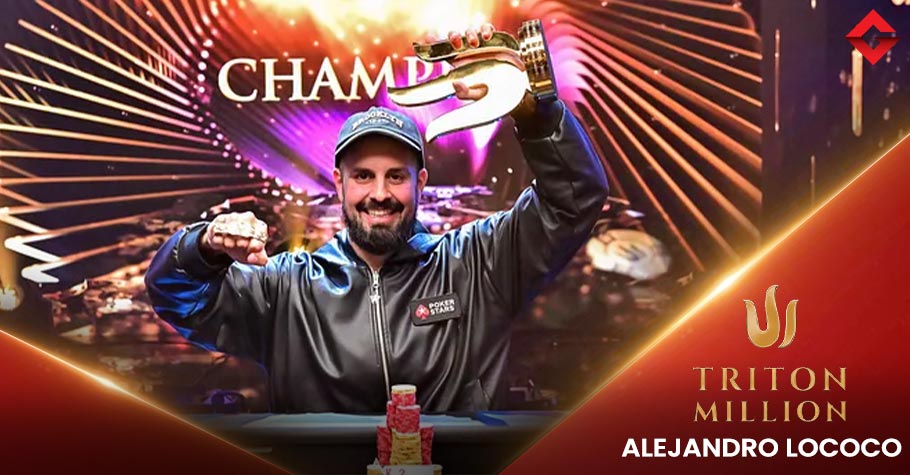
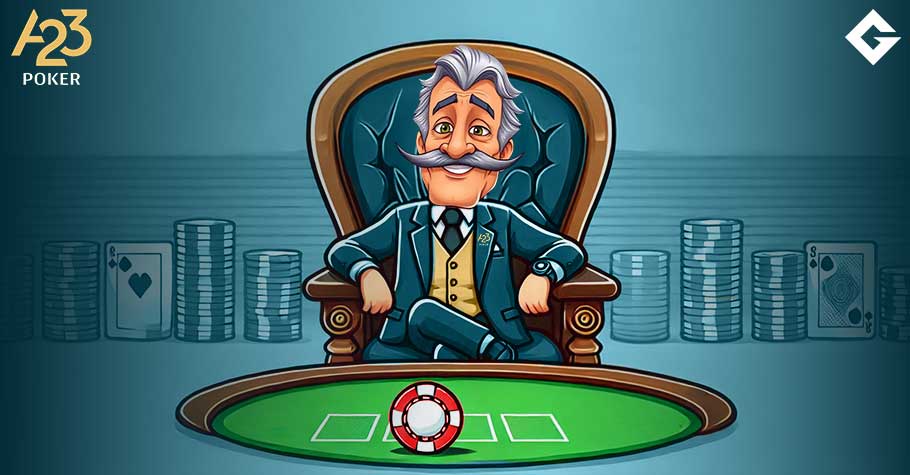

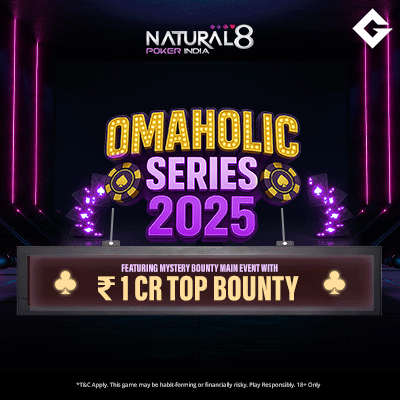



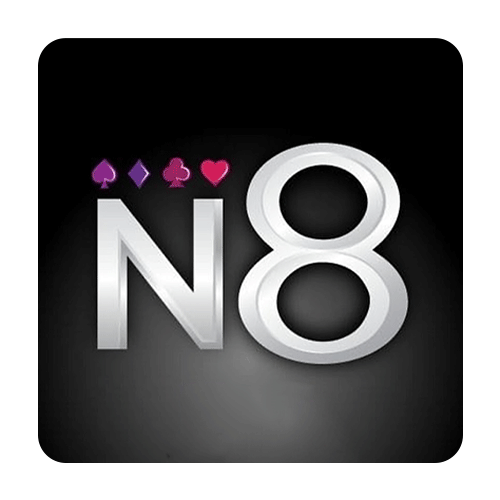


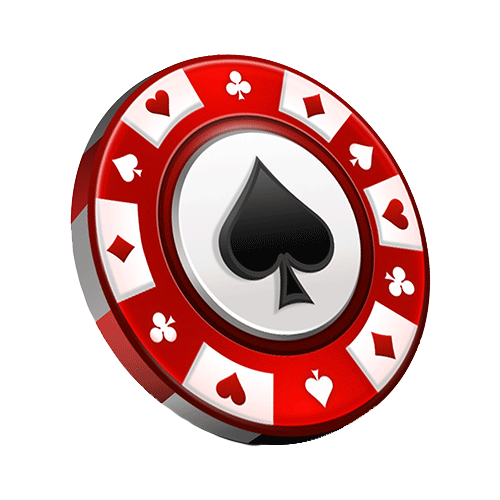








Leave a Reply